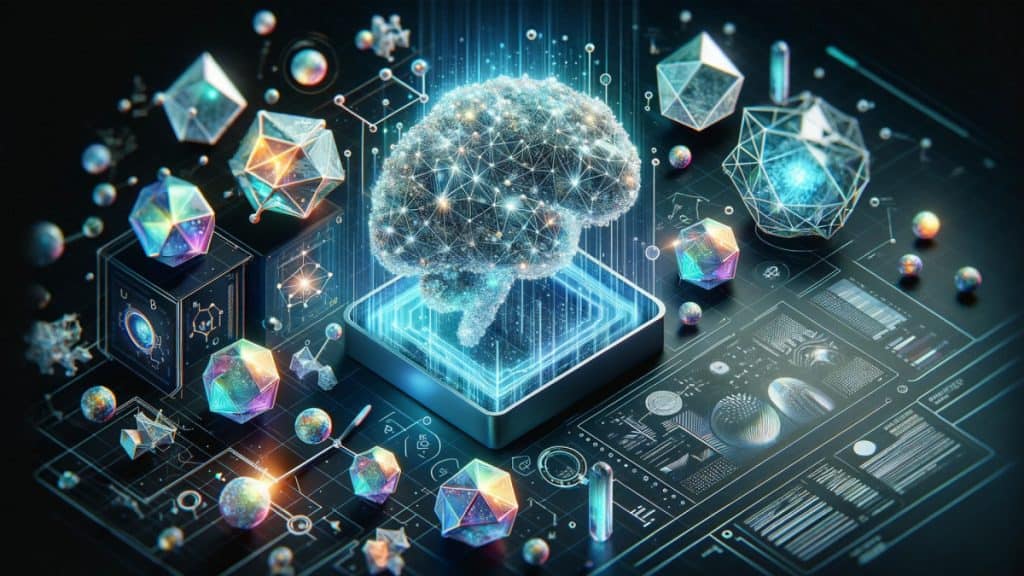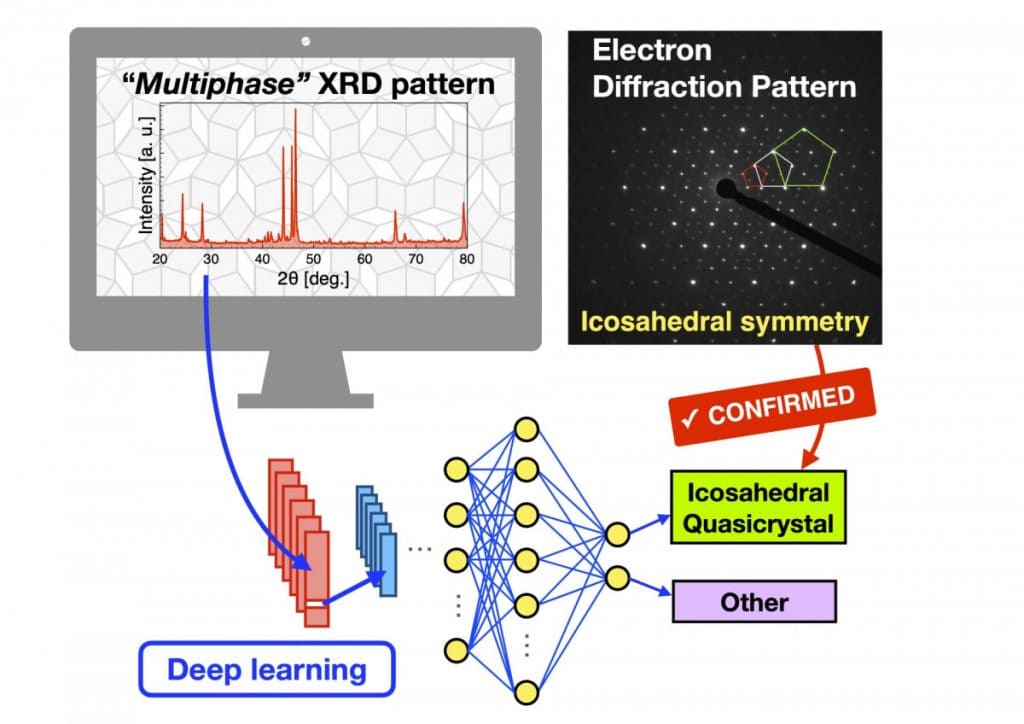Tokyo University of Science Develops AI Method to Speed Up Crystal Discovery


In Brief
Tokyo University of Science, Japan has discovered an AI method to expedite the identification of phases within crystalline samples.

Researchers from the Tokyo University of Science, Japan have unveiled a novel deep-learning model designed to expedite the identification of phases within multiphase crystalline samples.
Led by Junior Associate Professor Tsunetomo Yamada, the team introduced a machine learning “binary classifier” model that has a prediction accuracy of over 92%, and particularly noteworthy is its ability to identify icosahedral quasicrystal (i-QC) phases — even when not the dominant component.
Using the model, scientists can quickly identify different crystals are present in a mixture. This method is widely used for the development of semiconductors, pharmaceuticals, photovoltaics and catalysts.
Currently, scientists use the powder X-ray diffraction method, which is a complex process when dealing with multiphase samples containing diverse crystal types. As scientists design novel materials for emerging challenges like energy storage and carbon capture, the need for precise identification becomes important.
The study involved collaboration among the Tokyo University of Science (TUS), National Defense Academy, National Institute for Materials Science, Tohoku University, and The Institute of Statistical Mathematics.
“Across the world, researchers have made attempts to predict new substances using artificial intelligence and machine learning. However, identifying whether a desired substance is produced takes up substantial time and effort on the part of human experts. Therefore, we came up with the idea of using deep learning to identify new phases,” Junior Associate Professor Tsunetomo Yamada, said in a written statement.
Using Deep Learning for Identifying Alloys
According to researchers, they first created a “binary classifier” using 80 types of convolutional neural networks to develop the said model. They next trained the classifier model using synthetic multiphase X-ray diffraction patterns, which were designed as representations of the expected patterns associated with i-QC phases.
Following the training phase, the model’s performance was assessed using both synthetic patterns and a database of actual patterns.
The AI model successfully identified an unknown i-QC phase within multiphase Al–Si–Ru alloys when used for screening 440 measured diffraction patterns from unknown materials in six different alloy systems, which was further confirmed by analyzing the microstructure and composition of the material using transmission electron microscopy.

Moreover, this deep learning model, designed for rapid phase identification, is not limited to i-QC phases. The researchers believe it can be extended to identify other crystalline materials, marking a significant advancement in the field of materials science.
Its potential impact spans industries dealing with mesoporous silica, minerals, alloys, and liquid crystals. It also offers a promising avenue for the discovery of new and interesting materials, in materials science space.
Disclaimer
In line with the Trust Project guidelines, please note that the information provided on this page is not intended to be and should not be interpreted as legal, tax, investment, financial, or any other form of advice. It is important to only invest what you can afford to lose and to seek independent financial advice if you have any doubts. For further information, we suggest referring to the terms and conditions as well as the help and support pages provided by the issuer or advertiser. MetaversePost is committed to accurate, unbiased reporting, but market conditions are subject to change without notice.About The Author
Kumar is an experienced Tech Journalist with a specialization in the dynamic intersections of AI/ML, marketing technology, and emerging fields such as crypto, blockchain, and NFTs. With over 3 years of experience in the industry, Kumar has established a proven track record in crafting compelling narratives, conducting insightful interviews, and delivering comprehensive insights. Kumar's expertise lies in producing high-impact content, including articles, reports, and research publications for prominent industry platforms. With a unique skill set that combines technical knowledge and storytelling, Kumar excels at communicating complex technological concepts to diverse audiences in a clear and engaging manner.
More articles

Kumar is an experienced Tech Journalist with a specialization in the dynamic intersections of AI/ML, marketing technology, and emerging fields such as crypto, blockchain, and NFTs. With over 3 years of experience in the industry, Kumar has established a proven track record in crafting compelling narratives, conducting insightful interviews, and delivering comprehensive insights. Kumar's expertise lies in producing high-impact content, including articles, reports, and research publications for prominent industry platforms. With a unique skill set that combines technical knowledge and storytelling, Kumar excels at communicating complex technological concepts to diverse audiences in a clear and engaging manner.





















































